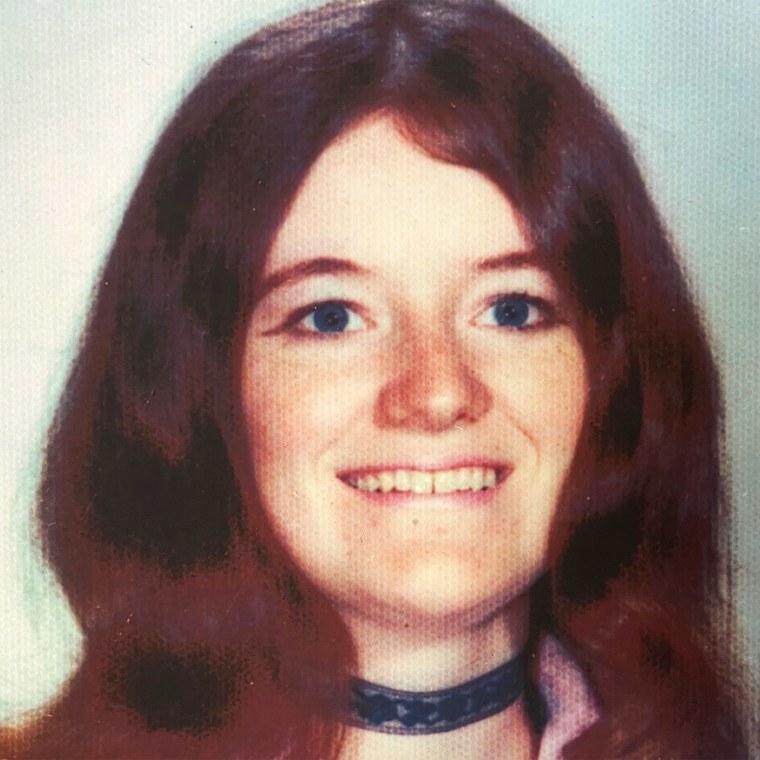The murder of a Vermont teacher more than half a century ago was solved after authorities linked a discarded cigarette butt to a suspect who became a Buddhist monk after the killing, authorities said Tuesday.
The suspect, William DeRoos, died in San Francisco 15 years after Rita Curran, 24, was strangled in 1971, said Jon Murad, the acting chief of the Burlington Police Department.
A combination of genetic genealogy, DNA testing and a recent interview with DeRoos' former wife allowed authorities to identify him as the suspect, Murad told reporters.
“The random violence of her murder left a stain on our community, and it devastated her family,” Murad said. “For 50 years they have waited for justice.”

Curran's roommates found her dead in their apartment on July 19, 1971, said Jim Trieb, the commander of the police department's detective services bureau.
DeRoos lived with his wife two floors above Curran, but he was never considered a suspect at the time, Trieb said. In an interview with authorities the day after the killing, DeRoos and his wife, Michelle, provided an alibi, saying they'd been home the night of the killing and didn't hear or see anything, Trieb said.
The case went cold, but authorities who investigated the case in 1971 collected a piece of evidence — a cigarette butt — that became key to the resolution, Trieb said.
The item was discovered by Curran's right arm and submitted for DNA processing in 2014, Trieb said. A male DNA profile was found, but a search of the country's law enforcement repository for genetic material returned no matches, Trieb said.
The department worked with Parabon NanoLabs, a genetic genealogy firm that combines historical research with genetic analysis, to search publicly for clues about the killer's identity, Trieb said.
CeCe Moore, the company's chief genetic genealogist, told reporters Tuesday that, working from a publicly available database, she was able to narrow the list of potential suspects to DeRoos within a few hours.
After the discovery, detectives interviewed DeRoos' then-wife again, and she told them that on the night of July 19, 1971, she and DeRoos had actually gotten into a fight and he'd left, Trieb said. He returned after she'd gone to sleep and later told her to tell authorities they'd been home all night, Trieb said.
One of the detectives who interviewed her, Thomas Chenette, said Tuesday he didn’t believe Michelle — who had married DeRoos two weeks before Curran’s death and now goes by a different last name — knew about the murder.
“I think she lied at the time because she was young, naive, newly married and she was in love,” Chenette said, adding: “She didn’t want him to get him to get into trouble for a crime she didn’t think he committed.”
After the killing, DeRoos left his wife and moved to Thailand to become a Buddhist monk, Trieb said. By 1974, he'd returned to the U.S. and was living in San Francisco, where another woman he married recently told authorities she knew him as a guru named Dutch, Trieb said.
The woman said he could be violent, once choking her and stabbing a friend with a knife in what Trieb described as an unprovoked assault. Trieb said DeRoos was arrested in the stabbing, but it wasn't clear whether he faced charges in the second incident.
The woman left DeRoos, who died of a drug overdose in a San Francisco hotel in 1989, officials said.
Additional DNA testing found a sample strongly associated with DeRoos' DNA on a jacket Curran had been wearing the day of the killing, Trieb said.
Murad said that while no charges will be filed, the local state's attorney said the investigation found probable cause that DeRoos committed the murder.
Speaking to reporters Tuesday, a brother of Curran's said he didn't "think so much about the guy who did this to Rita as I do about Rita and my parents — what they went through," adding, "I pray to my parents, and I pray to Rita."